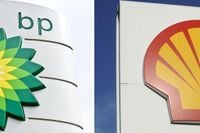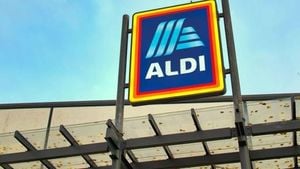On June 25, 2025, Shell categorically denied reports that it was in takeover talks with its smaller British rival, BP, amid widespread speculation about a potential historic £60 billion merger that could reshape the energy sector. The Wall Street Journal had reported that early discussions were underway between the two oil giants, suggesting BP was considering the approach, but Shell swiftly dismissed these claims as "further market speculation." A Shell spokesperson told Sky News, "No talks are taking place. As we have said many times before, we are sharply focused on capturing the value in Shell through continuing to focus on performance, discipline and simplification." BP declined to comment on the reports.
The speculation stirred significant market reactions. Following the WSJ report, BP’s US-listed depository shares surged 10% in New York, while Shell’s shares dipped. However, after Shell’s denial, BP’s rally subsided. By 17:25 GMT, BP’s American depository shares were up 1.5% at $30.40, while Shell’s shares fell 0.7% to $69.70. The contrasting market movements underscored investors’ keen interest in the possibility of a merger between these two energy giants.
Shell’s chief executive, Wael Sawan, has repeatedly emphasized a high bar for acquisitions, favoring share buybacks over large-scale purchases. Earlier in the year, Sawan told the Financial Times, "We will always look at these things, but you are also looking to see what is the alternative. Right now, buying back Shell [shares] for us continues to be absolutely the right alternative to go for." This stance reflects Shell’s strategic focus on operational performance and shareholder returns rather than expansion through acquisitions.
BP, valued at nearly £59 billion (approximately $80 billion) as of June 25, 2025, has long been regarded as a potential takeover target due to its underperformance relative to industry peers. Shell, by contrast, boasts a market capitalization exceeding £153 billion ($208 billion), highlighting the significant size disparity between the two companies. The gulf between their valuations has widened since 2020, when BP embarked on a bold shift toward green energy under then-chief executive Bernard Looney.
Looney’s ambitious plan aimed to reduce BP’s oil production by the end of the decade, positioning the company as a leader in the transition to net zero. However, the strategy faltered amid soaring oil and natural gas prices triggered by Russia’s invasion of Ukraine in early 2022. The resulting energy crisis forced BP to backtrack on many of its green commitments. Looney’s tenure ended controversially after he failed to disclose personal relationships with staff, leading to his ousting by the BP board.
BP’s current chief executive, Murray Auchincloss, who took the helm in February 2025, has shifted the company’s focus back toward fossil fuels. He pledged to cut more than £4 billion from BP’s low-carbon investments in favor of growing oil and gas production. Auchincloss also announced plans to reduce BP’s global workforce by approximately 5%, amounting to thousands of job cuts. Despite these efforts, investor confidence remains fragile, with BP’s share price having fallen by nearly a third over the past year.
Adding to BP’s challenges, activist hedge fund Elliott Management acquired a stake earlier this year and has been pressing for a major strategic overhaul to revive BP’s market value. Yet, the company’s debt load, estimated at $27 billion, complicates any potential takeover, making it a less straightforward acquisition target despite its depressed valuation.
Industry analysts have highlighted the potential synergies a Shell-BP merger could unlock. An investor familiar with the sector noted, "BP is an attractive asset for Shell because there’s a lot of synergies. The market didn’t expect Shell to do it now because they still have cost-cutting plans, but they’re getting to the end of those. BP has been weak and with a low market cap, so there’s quite a lot of synergies." The same insider pointed out that Chevron, another American oil giant and potential suitor, is currently sidelined due to ongoing litigation related to its takeover of Hess, which could make a Shell bid for BP easier without a competitive counteroffer.
However, any deal would face intense scrutiny. BP remains a strategically important asset for the British state, having been majority-owned by the government until the 1980s and maintaining close ties since. Daniel Slater of Zeus Capital emphasized the regulatory challenges ahead, stating, "I’m sure there would be a requirement for numerous government clearances on any deal, and I’d like to see the British government scrutinise that very carefully from a holistic national interest standpoint." Competition regulators would also closely examine a merger given both companies operate petrol stations across the UK.
Isabelle Zhang, an energy analyst at Alphavalue, warned that the current market environment complicates such a large-scale deal. She said, "The deal could lead to $6 billion of cost savings but the current environment makes such a deal challenging as oil prices fall. Shell management has been clear in its focus on disciplined capital returns and prioritising own share buybacks, so unless we see material repricing or deleveraging from BP, a near-term move seems unlikely." Indeed, oil prices have softened recently, adding to the uncertainty surrounding any potential merger.
The last time an acquisition of this magnitude was considered in the energy sector was during the COVID-19 pandemic, when Exxon and Chevron held preliminary talks about a possible combination that would have been the largest merger in history. That deal ultimately did not proceed, underscoring the complexity and regulatory hurdles such transactions face.
For now, Shell remains focused on its strategy of performance, discipline, and simplification. The company’s leadership appears committed to delivering shareholder value through operational excellence rather than pursuing risky megamergers. Meanwhile, BP continues to navigate a difficult transition, balancing investor demands, green energy ambitions, and the realities of a volatile global energy market.
As the energy landscape evolves amid geopolitical tensions, fluctuating commodity prices, and mounting climate pressures, the fate of these two British oil giants remains a subject of intense speculation. Whether a merger will ever materialize remains uncertain, but for now, Shell’s clear message is that it is not in talks to acquire BP, preferring instead to focus on its own path forward.




